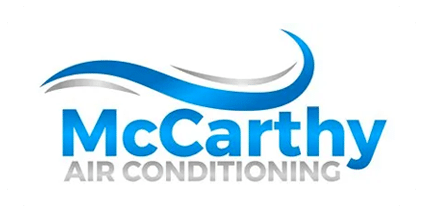Extreme weather can put a lot of stress on your HVAC system, making it crucial to prepare ahead of time. Whether it’s a scorching summer or a freezing winter, taking steps to protect your home’s heating and cooling system ensures it keeps running smoothly throughout the worst conditions.
Understanding which parts of your HVAC system are most vulnerable is the first step in preparing for harsh weather. Insulating and weatherproofing can provide added protection, preventing damage and reducing unexpected breakdowns. With simple changes, you can shield your HVAC against the elements and improve its efficiency.
Routine maintenance and having an emergency plan in place are also vital. These actions will not only safeguard your system but also ensure your peace of mind no matter what the weather brings. With a bit of foresight and effort, you can keep your home comfortable and your HVAC running as it should.
Assessing System Vulnerabilities
Understanding which parts of your HVAC system are at risk during extreme weather is crucial for preventing damage and ensuring it runs efficiently. Components such as outdoor units, pipes, and electrical connections are often the most vulnerable. Outdoor units can be exposed to severe elements like heavy rain, wind, or snow, which can cause physical damage or flooding. Electrical connections might also fail when exposed to moisture, leading to power outages or system malfunctions.
Weather impacts safety and performance. In extreme heat, your HVAC system might struggle to maintain the desired temperature, causing it to work overtime. This can increase wear and tear, leading to costly repairs or reduced lifespan. Similarly, extremely cold weather can cause pipes to freeze, which may lead to bursts or leaks.
To mitigate these risks, it’s important to regularly check these parts and make necessary adjustments:
– Outdoor Units: Ensure they are elevated and secure to prevent water damage.
– Pipes and Ducts: Insulate them to avoid freezing.
– Electrical Components: Check for proper seals to prevent moisture ingress.
By addressing the vulnerabilities, you not only protect your HVAC system but also ensure safety and reliability throughout extreme weather conditions.
Weatherproofing and Insulating
Weatherproofing your HVAC system helps it withstand extreme temperatures and reduces the chances of breakdowns. Start by sealing any gaps or leaks in your windows and doors. This keeps the inside of your home insulated and minimizes the load on your system. Consider using weatherstripping or caulk to fill gaps.
Insulation is crucial for protecting critical components. Make sure that your pipes and ducts are well-insulated, especially in areas prone to freezing. Insulating helps maintain optimal temperature and prevents heat loss, improving efficiency.
Another effective method is to cover your outdoor unit. Use a weatherproof cover to shield it from rain, snow, or debris. Ensure there’s ample airflow to prevent overheating.
Weatherproofing Tips:
– Seal Leaks: Use weatherstripping around doors and windows.
– Insulate Pipes: Use foam pipe covers in cold areas.
– Cover Outdoor Units: Use breathable covers to protect from elements.
These steps help your HVAC system run efficiently during harsh weather and keep performance reliable. By investing a little effort into weatherproofing, you ensure your system’s longevity and efficiency.
Routine Maintenance for Weather Readiness
Keeping your HVAC system in top shape requires routine maintenance, especially before extreme weather hits. Regularly scheduled check-ups allow you to address small issues before they turn into costly repairs. Begin by replacing or cleaning air filters every couple of months. Clean filters ensure your system runs efficiently and maintains good air quality.
Inspect your HVAC system’s belts and motors. Look for signs of wear and tear that could prevent the system from operating efficiently. Lubricating moving parts can also reduce friction, leading to smoother operation.
Don’t forget to check the refrigerant levels. Properly balanced refrigerant ensures the system cools or heats effectively. If levels are low, contact a professional for a refill to avoid straining your system.
Importance of Professional Inspections:
– Timely Repairs: Catch small issues early to prevent breakdowns.
– Safety Check: Ensure electrical components are working safely.
– Efficiency Assessment: Keep your HVAC system running optimally.
Professional inspections are key in preparing for harsh conditions, providing peace of mind that your system is ready when you need it most.
Emergency Preparedness for HVAC Systems
Preparing your HVAC system for emergencies involves more than just maintenance. It’s wise to have a backup power plan in place. An unexpected power outage can disrupt your heating and cooling, which is when generators become vital. Portable generators can provide temporary power and keep your system running during outages.
Consider installing surge protectors for your entire HVAC system. Surges from storms or power returns can damage your equipment. Surge protection devices can prevent electrical overloads and protect sensitive components.
Guidelines for Safe Operation:
– Use Generators Wisely: Follow manufacturer’s guidelines for safety.
– Install Surge Protectors: Safeguard against power spikes.
– Monitor System During Outages: Ensure your system functions during interruptions safely.
These steps ensure your HVAC system remains reliable and protected during extreme weather, giving you confidence that your home stays comfortable.
Conclusion
Bracing your HVAC system for extreme weather involves understanding and addressing vulnerabilities, ensuring proper weatherproofing and insulation, maintaining a routine care schedule, and having emergency plans ready. These measures provide resilience to your system, preventing investment in costly repairs or replacements. Staying proactive means your HVAC system works when needed most, maintaining your home’s safety and comfort.
Get ready for anything with McCarthy Air Conditioning. Our expert team is dedicated to ensuring your HVAC system is prepared for extreme weather conditions. Contact our HVAC experts today to schedule a comprehensive system check and let us help keep your home comfortable year-round.




